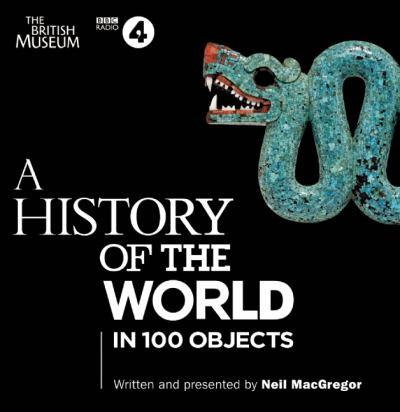While we’re catching up with historical podcasts, note that BBC Radio 4’s The History of the World in 100 Objects (iTunes – RSS Feed – Web Site) has wrapped up and covered all 100 objects. And not, mind you, just any old objects: these objects come straight from the collection of the British Museum, and thus almost certainly reveal the story of mankind more effectively than most. For that has constituted the program’s project since its inception: to tell, for just under fifteen minutes at a stretch, one chapter of human history as the trained eye can read it in an object like an early writing tablet, a Chinese bronze bell, or an Egyptian clay model of cattle. Don’t let the seeming plainness of these artifacts fool you; the show approaches them with all the most advanced audio production techniques. And after you’ve listened, you’ll realize that, looked at from a suitably historical perspective, there’s not a plain object in this bunch.
Since A History of the World in 100 Objects has finished its journey to the present day, the new listener has no obligation to begin in the ancient world and work their way forward. You might well prefer to begin at the end, as it were, and draw insights from one of our everyday objects like a credit card (albeit, in this broadcast, one that conforms to Shari’a law), or a slightly futuristic object now entering our everyday lives like a solar-powered lamp. From there, you can delve deeper and deeper into our culture and technology’s past: the nifty lamp gives way to the credit card which gives way to a David Hockney painting, which gives way to the HMS Beagle’s chronometer to the mechanical galleon and a Korean roof tile until you’re back at the Mummy of Hornedjitef. If you get back that far and still find yourself longing for more from host Neil MacGregor, be aware that he’s got a new, 20-part historical series going called Shakespeare’s Restless World. The range of source material may have narrowed, but the depth remains.
Related content:
The History of Rome in 179 Podcasts
The History of Philosophy Without Any Gaps – Peter Adamson’s Podcast Still Going Strong
Colin Marshall hosts and produces Notebook on Cities and Culture. Follow him on Twitter at @colinmarshall.



This is indeed the most wonderful and comprehensive podcast series about the history of mankind I have encountered so far.nBUT the way you advertize here just twists the creators’ intention as I understand it: “A History of the World” celebrates cultural diversity and interpretive openness.nBy re-naming it “THE COMPLETE History of the World”, you close off the project of history writing — as if it was complete and fixed, nothing new or different to add.nThis is an utterly anti-creative discursive move. Pity.
I join the wonderful and complete History of the World.
I express my specials feelings.
Thank so much.